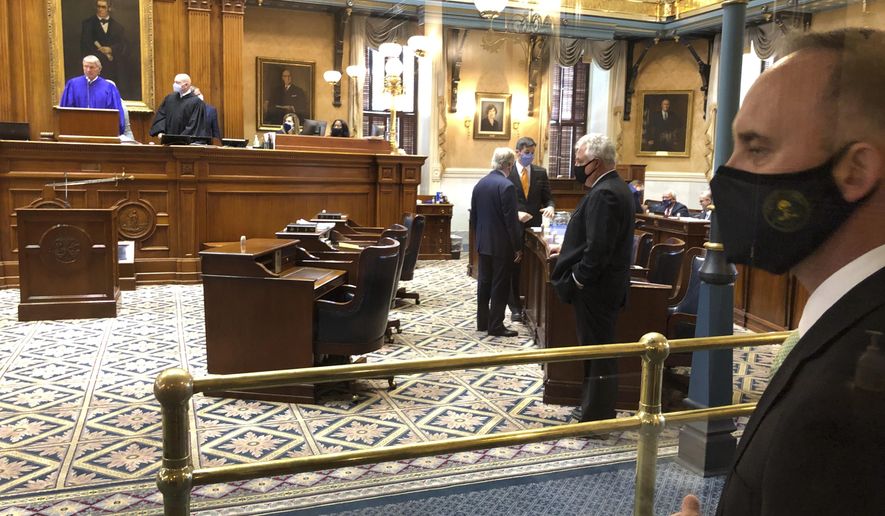COLUMBIA, S.C. (AP) - The chairman of the House committee that writes South Carolina’s budget said he also wants a small raise for teachers and a $1,000 COVID-19 hazard pay bonus for lower-paid state workers, but now isn’t the time to spend that money.
Instead, House Ways and Means Chairman Murrell Smith said Wednesday he wants to wait until January and make sure COVID-19 hasn’t wrecked the economy even more than state economists have predicted.
The Senate approved the raises and the hazard pay, totaling about $70 million in the state’s roughly $9 billion budget, on Tuesday. They then attacked House members a day later for not taking it up.
Those workers and teachers “received as a thank you from the House of Representatives a big fat zero,” said state Sen. Greg Hembree, a Republican from Horry County on Wednesday.
Smith said he is almost certain the House won’t take up the Senate’s proposal during the special session that ends Sept. 24, but the Sumter Republican is willing to talk about it with senators when the next session of the General Assembly starts in January and Smith hopes economists have a better handle on the COVID-19 economy nearly a year after the pandemic started.
“The only disagreement we have is they are rushing head in to a storm and they don’t know whether the storm is going to last for a month or is going to last for years,” Smith said after Wednesday’s House session.
Smith said he would rather be prudent and wait than spend money the state could have saved and later end up furloughing state workers or make deep cuts in budgets. Smith entered the House nearly 20 years ago and remembers what happened in the Great Recession of 2009 when $1 billion of budgeted revenue evaporated and the state agencies had to make huge cuts that caused damage that many said it took a decade to reverse.
“Let’s be careful. Let’s make sure we don’t make rash decisions we regret later,” Smith said.
The House is following the course recommended by Gov. Henry McMaster, who also wanted to copy and paste the 2019-2020 budget, spending at the same levels this budget year at least until January.
The Senate’s budget bill also mostly copied last year’s spending with a few exceptions. They said they answered fears of mid-year cuts if the economy gets worse because of the pandemic by setting aside $500 million of the $775 million left over in previous budgets in case revenue estimates are too high.
The Senate proposal set aside $50 million for education, most of it going toward funding small “step increase” raises for teachers, which amount to several hundred dollars a year given annually as teachers gain experience.
Smith said the House will give teachers those raises in January and included the six months of extra money they should have gotten if the raises were in place when contracts started July 1.
The Senate addition to the budget also included $20 million to give hazard pay bonuses of $1,000 to state employees who make less than $50,000 a year and had to keep working in jobs that could expose them to COVID-19. Those employees include prison guards, state troopers and health workers giving COVID-19 tests.
Rep. Gilda-Cobb-Hunter said Republican House members should start paying attention to teachers and state employees because teachers learned their power in May 2019 when they gathered more than 10,000 people for a march on the Statehouse for better pay and working conditions. The Democrat from Orangeburg said teachers may march again if they don’t think they can trust the governor and Legislature.
“I hope they do. I hope some of these state employees do. That’s the only thing that will force this body into action,” Cobb-Hunter said.
The Senate also set aside $9 million for school nurses and $50 million for security upgrades at state prisons.
Before the pandemic wrecked South Carolina’s economy, economists predicted the state government would be flush with nearly $2 billion in extra money to spend. The House made plans to give all state teachers a $3,000 raise, pay $100 million to improve rural roads, cut taxes and a number of other ideas.
But COVID-19 removed most of that planned surplus.
___
Follow Jeffrey Collins on Twitter at https://twitter.com/JSCollinsAP.




Please read our comment policy before commenting.